The 13 Best Movies of 2019
It's nearly the end of the year—reflecting on your favorite cultural moments of the year, whether in literary, musical, or on-screen formats, is de rigueur. Movies are a big one, but casting your mind all the way back can be a tricky exercise—did that film come out this year? Really? If you need a reminder, here are the films that excited, moved, and tickled us in 2019.
Everybody Knows
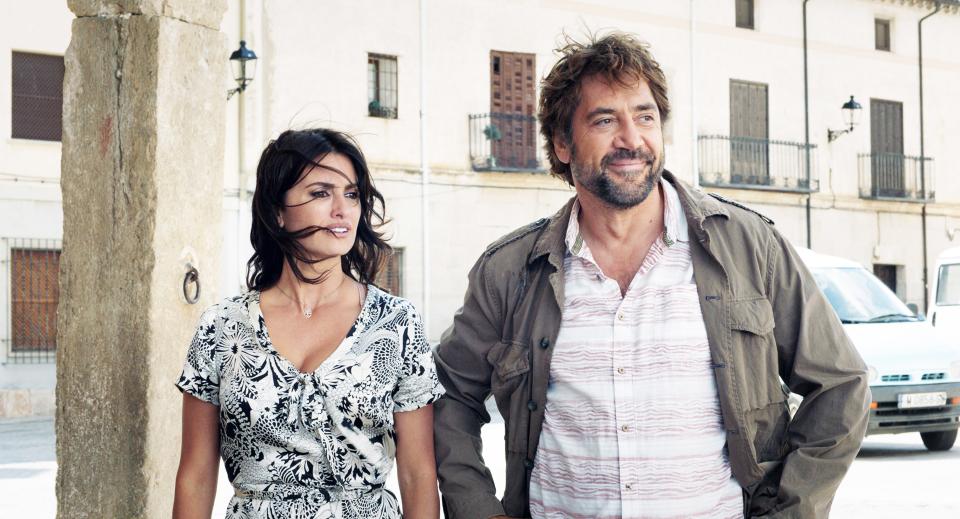
MCDEVKN EC013
Hollywood once led the world in glamorous melodramas, but these days the splashiest ones come from abroad. Take Everybody Knows, a platinum-level soap opera by Iranian Oscar-winner Asghar Farhadi. Penélope Cruz plays Laura, a Spaniard who lives in Argentina with her husband, Alejandro (Latin American superstar Ricardo Darín). As the story begins, she and their kids arrive for a wedding in her old hometown, where she meets her ex-lover, Paco (Javier Bardem), a now-married bull of a man who owns the winery that once belonged to Laura’s clan. Everything is going splendidly until, during the wedding party, Laura’s daughter, Irene (Carla Campra), is kidnapped. As he showed in A Separation, Farhadi is expert at making family dramas unfold like thrillers. Winning hot-blooded performances from a terrific cast—Cruz, Bardem, and Darín all brim with passion—this supremely sensitive director keeps you asking: Is something true just because everybody assumes it is? —John Powers
Miss Bala
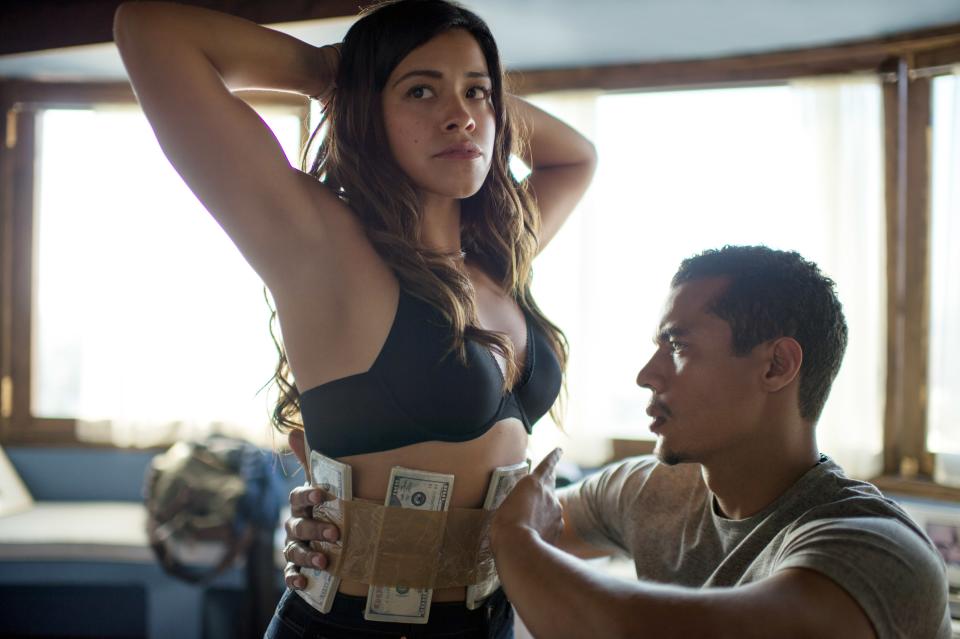
MCDMIBA EC028
In Miss Bala, Catherine Hardwicke’s English-language retooling of the great 2011 Mexican film, Jane the Virgin star Gina Rodriguez plays Gloria, an American who travels to Tijuana to help her friend Suzu (Cristina Rodlo) compete in the Miss Baja contest. But things go terribly wrong and Gloria finds herself in the clutches of Lino (Ismael Cruz Córdova), a charismatically capricious crime boss. Though the balas (bullets) keep flying, the heart of this movie isn’t violence, but the likable Gloria’s fear and horror—and how she overcomes them in order to survive. Hardwicke has a knack for capturing the emotion of extreme situations. —John Powers
Gloria Bell
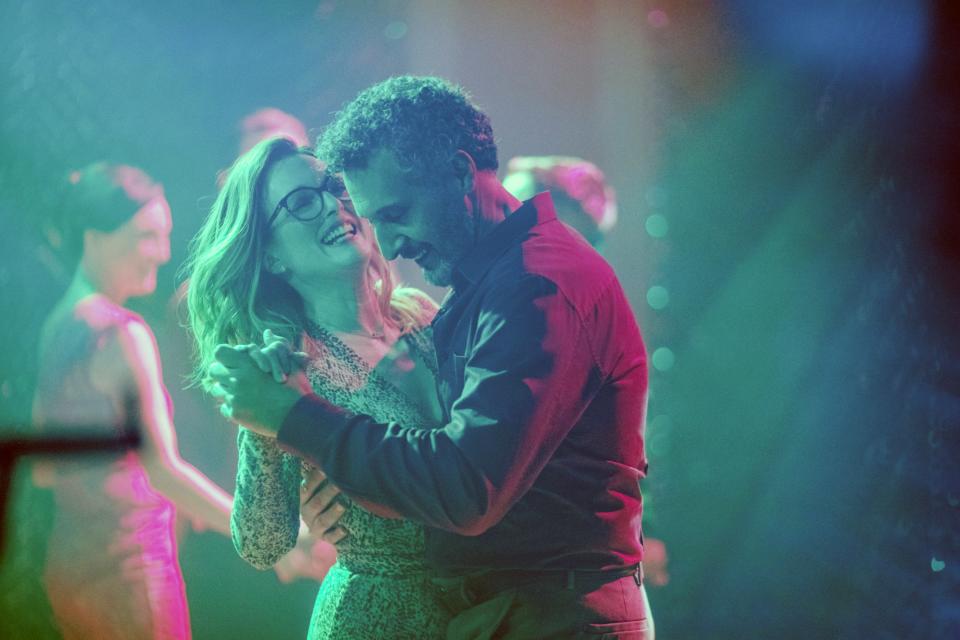
MCDGLBE EC005
It’s a sad reality that as some women get older, they can feel less visible in the world—particularly in the movies. The protagonist of Sebastián Lelio’s Gloria Bell is a bracing exception. Set in L.A., this finely etched character study stars Julianne Moore as the titular heroine, a 50-something divorcée who spends her days working in an insurance office and her nights at the disco looking for love. She thinks she may have found it in Arnold (John Turturro), who woos her with an ardor that’s warm if a tad needy. In remaking his 2013 Chilean film, Lelio (who won last year’s Best Foreign Language Film Oscar for A Fantastic Woman) pays loving attention to the details of Gloria’s life and absolutely nails the big scenes. Tender but unsentimental, Gloria Bell is a showcase for Moore’s brilliance, which lets us see every inner flicker of a lonely but indomitable woman who keeps stepping onto the dance floor. —John Powers
Non-Fiction
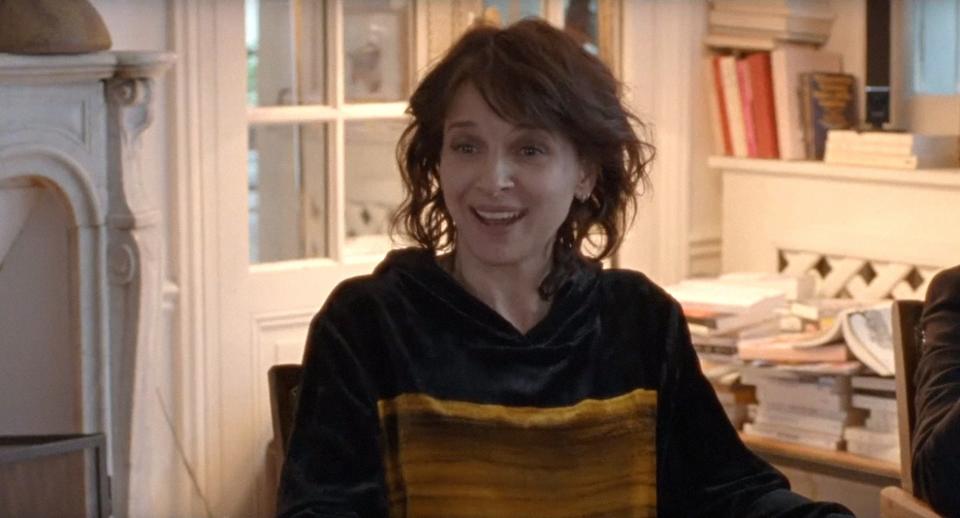
MCDNOFI EC010
“Writing will dematerialize—it’s a fact,” Alain Danielson (Guillaume Canet), a book publisher, remarks near the start of writer-director Olivier Assayas’s new comedy, Non-Fiction. “Why not go full digital?” He and his actress wife, Selena (Juliette Binoche), are hosting the first of several dinner parties in which personal observations are whipped, like egg whites, into Big Ideas about life today. Alain is editor to Léonard (Vincent Macaigne), a shambolic sinkhole of a novelist whose thinly fictionalized accounts of his own affairs have come under fire. His wife, Valérie (Nora Hamzawi), is a true-believing political aide; the specter of the new is Laure (Christa Théret), an ambitious digital consultant who aspires to hustle books into the cloud and Alain into bed. Through recent films like Clouds of Sils Maria, Assayas has established himself as one of the most appealing directors on the European scene. Non-Fiction can be understood as his wink at the moral farces of the late New Wave, yet the film is pleasantly up-to-date in its humor. Selena plays a “crisis-management expert” on a parody of a police drama; Valérie is comically unindulgent of the fretting artists around her. “Rework your text,” she tells Léonard with a shrug when he laments having a novel rejected. Non-Fiction defies even the self-serious not to be a little charmed. —Nathan Heller
Long Shot
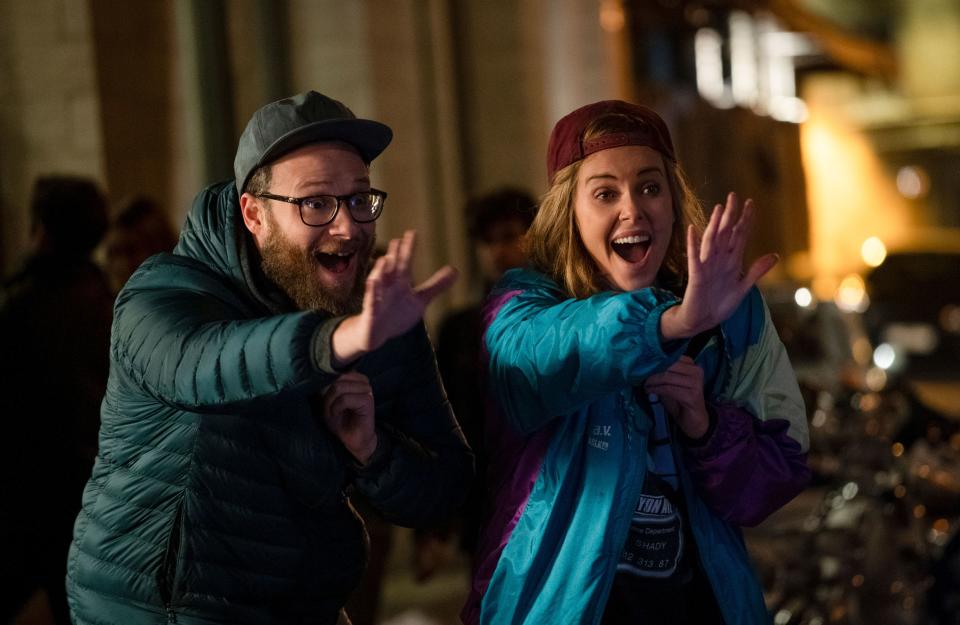
MCDLOSH EC027
The world of digital publishing again gets delightful treatment in the ribald rom-com Long Shot. When Fred Flarsky (Seth Rogen), a righteous alt-press Brooklyn journalist who dresses, for all weathers, in a boldly colored windbreaker, finds that his paper has been bought by a conservative media magnate, he quits and goes on a midday bender, eventually crossing paths with the U.S. Secretary of State, Charlotte Field (Charlize Theron), whom he knows better as his dreamy former babysitter. As the president, a mindless ex–TV star (Bob Odenkirk), decides not to seek reelection, Field makes a move for the White House—and hires the unmannered Flarsky as her speechwriter. What follows is a surprisingly fresh version of a beauty-and-the-beast romance. “Would you maybe not tell anyone about this?” Flarsky asks a Secret Service agent who knows of their encounters. “They would never believe me anyway,” the officer replies. Fair. —Nathan Heller
Booksmart
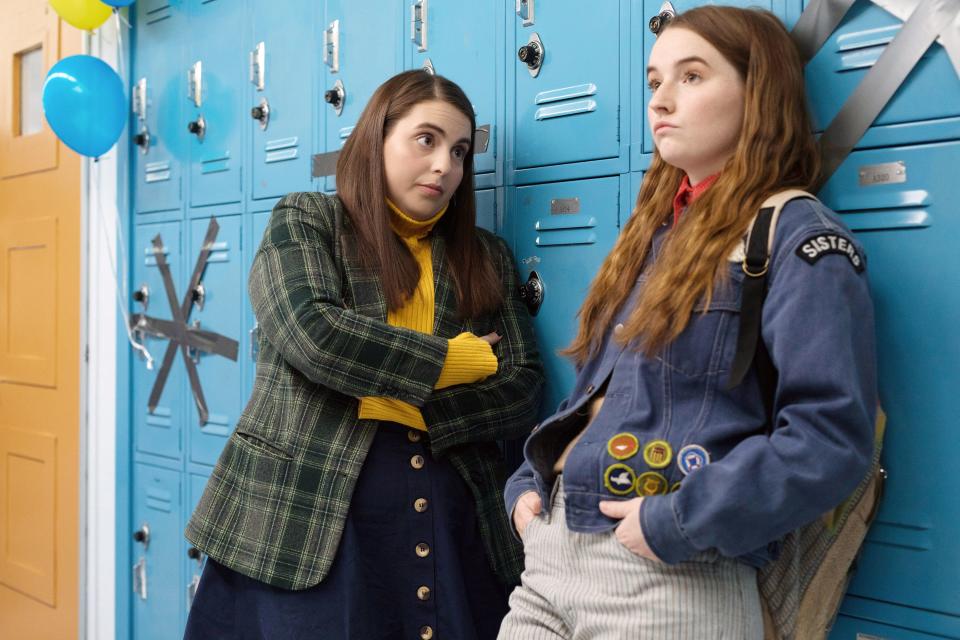
MCDBOOK EC048
In Olivia Wilde’s directorial debut, Booksmart, overbearing Molly (Beanie Feldstein) and self-conscious Amy (Kaitlyn Dever) are two best friends living a highly regimented life, forgoing high school shenanigans for advanced-placement exams and rigorous extracurriculars. And it’s worked, kind of, earning them entry to Ivy League colleges—and a less-than-sparkling reputation among their peers. “I would make passionate sex to Molly Davidson,” a laid-back skater says to a couple of his friends. “I’d just put a bag over her personality.” Molly overhears and lets them have it, informing them that while they were messing around, she was grinding her way toward Yale. But here’s the twist: The three popular kids have elite futures, too—Yale, Stanford, and Google. And so begins Molly and Amy’s final high school hurrah. The subsequent romp through three unpredictable parties, several exceedingly awkward Lyft rides, and requisite odd-couple romances is the smart teen movie that Generation Z deserves. —Francesca Mari
Late Night
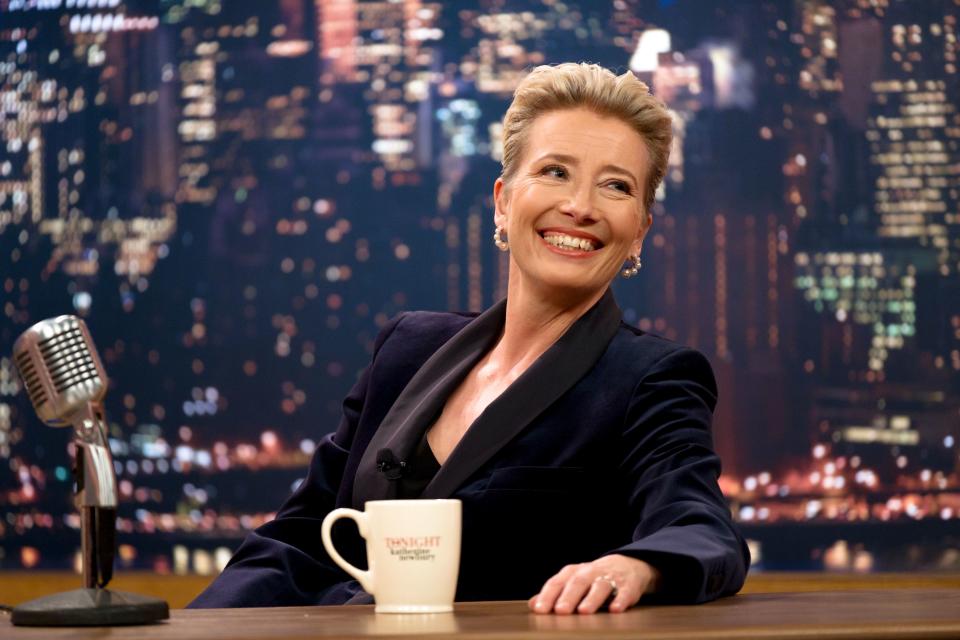
MCDLANI EC067
“What did I leave behind? No friends or children,” says Katherine Newbury (Emma Thompson), the witheringly wry talk-show host in Late Night, who’s applied a single-minded energy to her career. “You didn’t want them,” her husband (John Lithgow) responds. “You wanted excellence, which almost no one gets in their lifetime.” The excellence for which Katherine sacrificed more pedestrian satisfactions, however, now registers on-air as elitist. After 28 years and many Emmys, the network is replacing her. She’s smart but stale, known for bringing on “boring old broads.” And she’s entirely out of touch with her writing staff, which, it turns out, is all white bros. But she’s even more out of touch with her wider audience. Cue Molly Patel (Mindy Kaling)—the Indian diversity hire. Molly is determined to keep Katherine on air, persuading her to unleash her strongest opinions and embrace her distinct views: “I am a 56-year-old Englishwoman who has never given birth or seen a superhero film,” she tells her staff. “Write to that.” —Francesca Mari
The Farewell
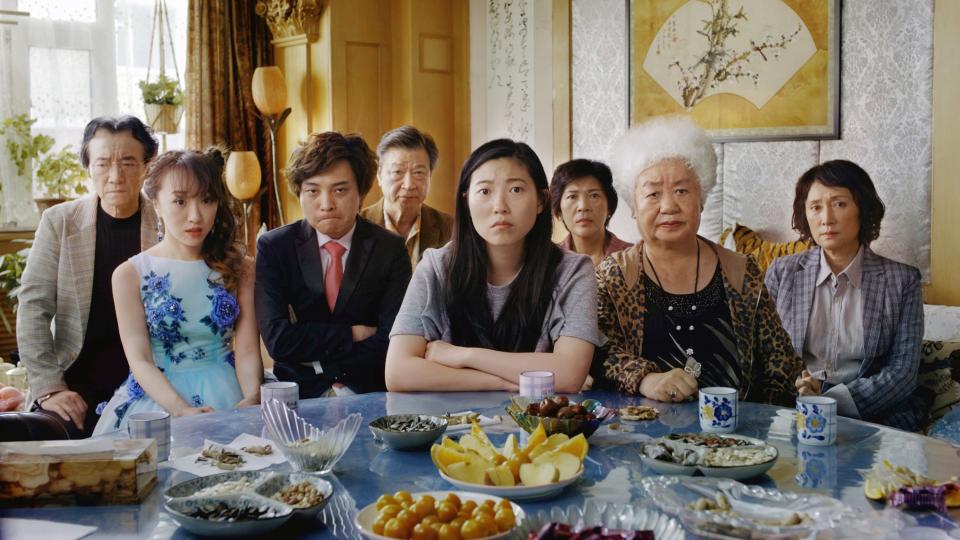
MCDFARE EC033
Opening with the brilliant line “based on an actual lie,” writer-director Lulu Wang’s The Farewell is a story about who the truth serves. Nai Nai (Shuzhen Zhou)—a Chinese matriarch whose two sons have emigrated to America and Japan—is diagnosed with stage IV lung cancer and given three months to live. To the shock of Billi (Awkwafina), the American-raised granddaughter, the family decides not to tell Nai Nai about her illness. (Wang’s relatives took a similar tack with the director’s own grandmother, which she described on This American Life.) “Chinese people have a saying,” Billi’s mother says. “When people get cancer, they die. It’s not the cancer that kills them, it’s the fear.” So the family stages a wedding—real or fake, it’s left ambiguous—for Nai Nai’s grandson as an excuse for everyone to gather. It’s a gift to Nai Nai—an opportunity for her to do what she loves most: boss everyone around. But Billi struggles with the lie. “In America, this would be illegal!” she says. Her uncle contends that it’s the family’s duty to “carry the emotional burden.” The movie makes mini-martyrs of those doing that carrying, but the performances give this tragicomic tale an offbeat charm. For a story about the benefit of fictions, the truth—that is, the premise—is the most powerful part. —Francesca Mari
Share
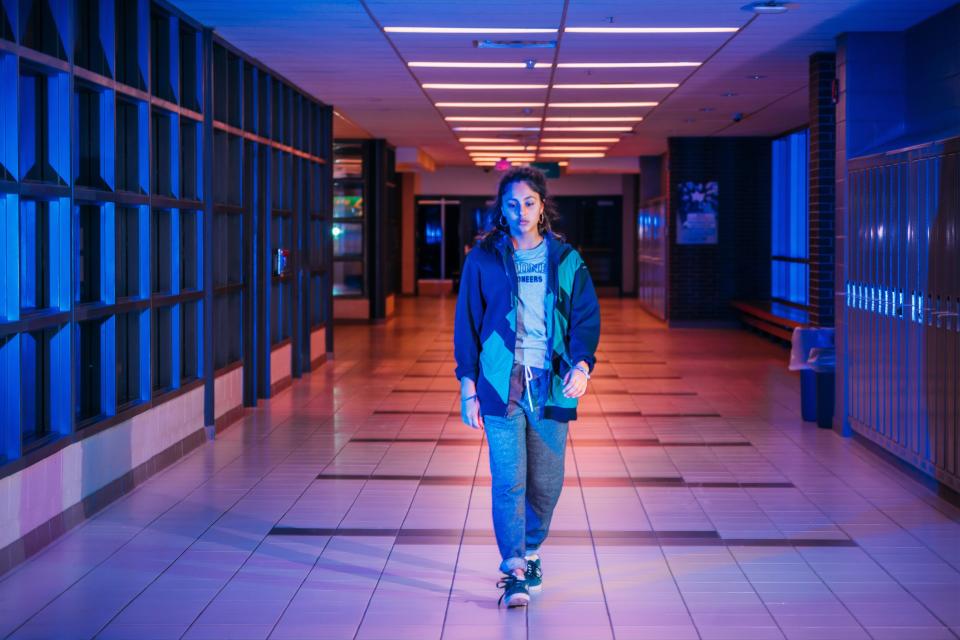
In Share, a sixteen-year-old girl (Rhianne Barreto) wakes up on her front lawn. She has bruises on her arms. Later, in the locker room, her basketball teammates notice rug burn-like markings on her back. A cell-phone video circulates: Mandy passed out in the bathroom at a party. Several boys are behind her, laughing. In writer-director Pippa Bianco’s atmospheric feature-length debut, Mandy spends the rest of the movie puzzling out what happened to her and what to do about the uncertainty. This is a story without villains or heroes, steeped in empathy and the cringey awkwardness of adolescence. When Mandy’s mom (Poorna Jagannathan) discovers the video, she is persuaded that the worst has happened, and insists that Mandy report it. “You are lucky in all the ways you were unlucky,” she says, “because there is proof and people could see it.” But they can’t see it, there isn’t proof— and alcohol has eroded the hideous picture. That’s the important gray area this discomfiting movie courageously explores: the perils of coming forward in a world that still penalizes survivors of sexual assault in ways big and small. —Francesca Mari
Judy
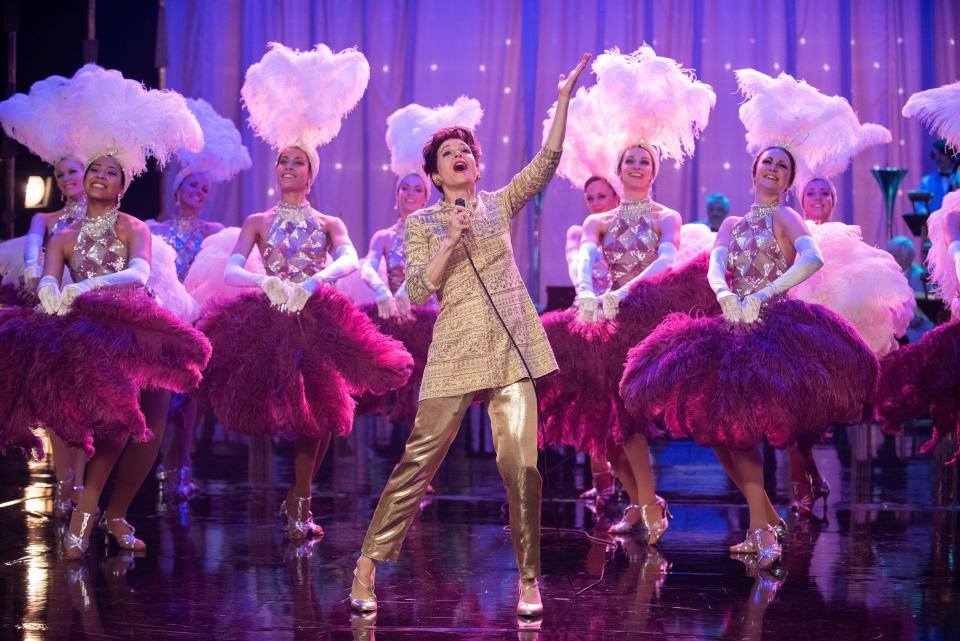
MCDJUDY EC001
In 1968, a frail, exhausted, and broke Judy Garland traveled to London for a sold-out five-week engagement at a popular nightclub called the Talk of the Town, reluctantly leaving her two young children at home with their father in Los Angeles. Her plan: to make enough money to get off the road once and for all. Instead, six months later, at age 47, she was found dead of an accidental overdose. In Judy, adapted from Peter Quilter’s musical End of the Rainbow and directed by Rupert Goold, Renée Zellweger plays the legendary singer in her twilight, battling insomnia, loneliness, impatient club managers, and an ex-husband, Sid Luft (Rufus Sewell), fighting for custody of their kids—all while getting onstage every night to deliver performances ranging from humiliating to sublime. Zellweger never asks us to pity Garland; instead she inspires admiration for her strength and resilience. As the movie unfolds, we see her befriend diehard fans, marry her fifth husband, Mickey Deans (Finn Wittrock), and generally try to carve out a normal-seeming path for herself despite the demands placed upon her as a national treasure. Zellweger’s heartfelt renditions of Garland’s hits capture the galvanizing extremes—the power and fragility, vulnerability and determination—that forged the icon’s indomitable spirit, making her the patron saint of hope over experience. —Carina Chocano
Vita and Virginia
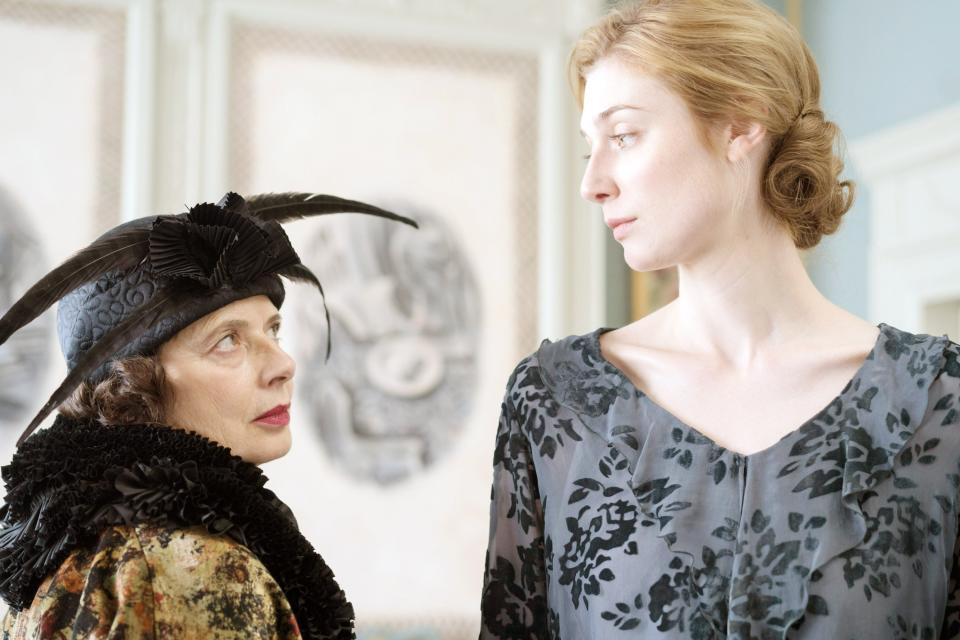
MCDVIAN IF012
“I’m really exhausted with this Sapphic pageant,” complains Vita Sackville-West’s husband in Vita and Virginia, Chanya Button’s deliciously intimate portrait of the mutual fascination between the free-spirited, scandal-prone aristocrat Sackville-West (played by Gemma Arterton) and the intellectual, bohemian Virginia Woolf (Elizabeth Debicki). Of course, the parade was made possible by the openness of both women’s marriages, which provided love and friendship in addition to respectability. The film covers the years between Mrs. Dalloway, Woolf’s first literary success, and Orlando, her first commercial one. (Orlando is also a fictional biography of Sackville-West that features an Elizabethan nobleman who mysteriously changes sex and lives on for another 300 years.) Arterton and Debicki make for a satisfyingly odd couple as the fashionable humorist and the Modernist author, whose surface differences are vastly overshadowed by their physical and emotional connection. The electronic soundtrack by Isobel Waller-Bridge (sister of Phoebe) lends an aura of urgency to the love affair, while the snippets from their letters, read aloud to the camera, deepen the sense of affinity. It’s rare to see a film about a female artist that doesn’t punish her for her talent and independence but rather shows what it’s like to stay true to herself in a rigid, hypocritical world. Two feels like an embarrassment of riches. —Carina Chocano
Jojo Rabbit
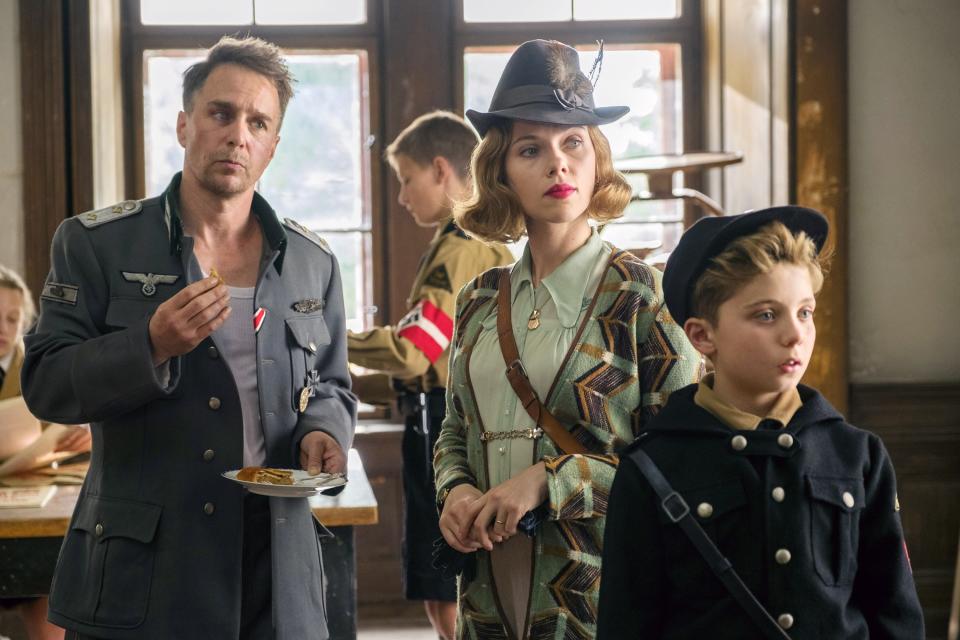
MCDJORA FS016
Jojo Rabbit, the exuberant new period film by Thor: Ragnarok director Taika Waititi, is being billed, somewhat anxiously, perhaps, as “an anti-hate satire.” You can see how a marketing department might go the extra mile to spell this out, given that the movie’s central character is an avid member of the Hitler Youth. But for Jojo (Roman Griffin Davis), it’s just a big, fun club—like Boy Scouts with hand grenades. Then again, he’s a guileless 10-year-old boy who’s lived his entire life in a bubble of propaganda, indoctrination, and persuasive graphic design. Jojo is lonely. His father is gone, his sister is dead, and his mother, Rosie (Scarlett Johansson), doesn’t want to discuss Nazi nonsense. So for this, he turns to his imaginary friend, Adolf Hitler. Hitler—or, rather, the friendly Führer of Jojo’s imagination—is played by Waititi (who is half-Jewish) as a kind of idiot Hobbes to Jojo’s credulous Calvin. Not long after his first camp weekend, run by the hilariously louche, one-eyed Captain Klenzendorf (Sam Rockwell), goes disastrously wrong, Jojo comes home to discover that his mother is hiding a Jewish girl. Elsa (Thomasin McKenzie) is older, tougher, and beautiful, and Jojo is as terrified of her as he is fascinated. Darkly hilarious and unbearably sad, Jojo Rabbit is like a Wes Anderson movie set on Jupiter, whimsy tempered with gravity, and it’s precisely this juxtaposition that makes its message of empathy pop. —Carina Chocano
Frankie

MCDFRAN SP007
Directed by Ira Sachs (Keep the Lights On, Little Men), Frankie is about a family coming together to come apart. Isabelle Huppert plays Frankie, a terminally ill movie star who plans one last vacation in the resort town of Sintra, Portugal, in order to sort everyone out. The story is as gossamer as it can be without evanescing completely—even Frankie’s illness is treated like a rumor. The family members have gathered but spend much of their time alone, strolling through forests, talking to strangers. Frankie tries to set up her son Paul (Jérémie Renier) with her hairstylist friend Irene (Marisa Tomei)—who has invited along her boyfriend Gary (Greg Kinnear). Frankie’s husband, Jimmy (Brendan Gleeson), is mourning her already, and her stepdaughter (Vinette Robinson) is trapped in a marriage that reveals itself to be a prison. The movie echoes its rhythms: meandering walks to nowhere, chance encounters with alluring strangers, ancient memories burnished through their telling until they gleam. Not much happens in Frankie, except life goes on—which, on the other hand, is everything. —Carina Chocano
Originally Appeared on Vogue

